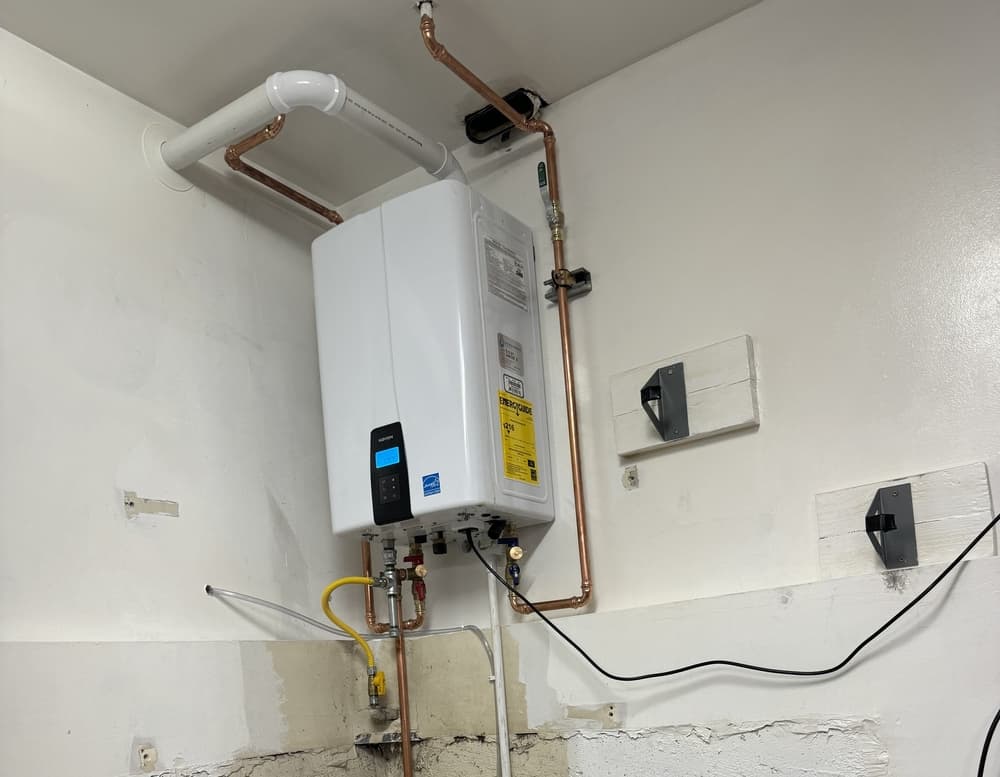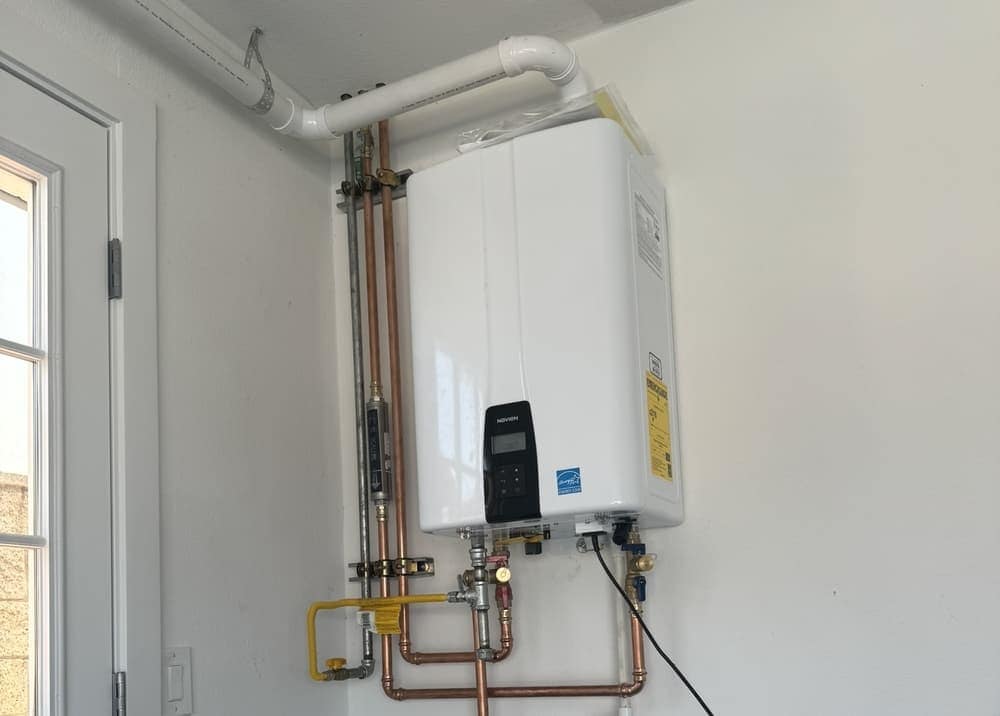
Is your water heater showing signs of trouble with a little leak that just won’t quit? That tiny drip from the water heater pressure relief valve might seem harmless, but it’s actually your water heater’s way of telling you something’s not right.
When you notice your water heater pressure relief valve leaking, it’s important to act fast. Letting it slide might just open the door to bigger headaches later on. Understanding why this valve leaks and how to stop it can save you from potential damage and costly repairs.
So, if you’re tired of dealing with that pressure relief valve leaking water heater, it’s time to get to the root of the issue and fix it before it becomes a bigger headache. Let’s get that water heater back in shape!
The Role of the Pressure Relief Valve
The pressure relief valve on your water heater is like a safety net for your system. Its job? To release excess pressure and keep things running smoothly.
Imagine your water heater as a pressure cooker—if things get too heated, the valve steps in to prevent an explosion by releasing some of that built-up pressure. Without it, you’d be risking serious damage to your water heater and even your home.
So, while it might seem like a small component, it plays a huge role in keeping everything safe and sound.
Common Causes of Leaking Water Heater Pressure Relief Valve
So, why might your valve be leaking? There are a few usual suspects:
- Excessive Pressure: If the water heater is over-pressurized, the valve will open to release some of that pressure, leading to a leak.
- Temperature Issues: If the water gets too hot, the valve might release some water to prevent overheating.
- Faulty Valve: Sometimes, the valve itself might be the problem—old or worn-out valves can malfunction and start leaking.
Understanding these causes is key to figuring out how to fix the issue and stop the leak for good.
When a Drip Is More Than Just a Drip
A slow drip might not seem like a big deal, but it’s your water heater’s way of signaling that something’s up. If you notice water pooling around the base of your heater or see the valve dripping constantly, don’t ignore it. This could be the first sign that your pressure relief valve needs attention.
DIY or Call in the Pros? How to Stop That Leak
If your water heater pressure relief valve is acting up, you might be tempted to fix it yourself—and sometimes, a quick adjustment is all it takes. But when those leaks just won’t quit, it’s time to consider calling in the experts. Our water heater repair specialists in Huntington Beach are ready to tackle the issue and ensure your system runs smoothly, so you can avoid bigger problems down the line.
Quick Fixes You Can Try at Home
If you notice your water heater pressure relief valve leaking, there are a few things you can try before picking up the phone.
First, check the temperature settings on your water heater—if they’re set too high, this could cause excess pressure, leading to a leak. Lower the temperature to see if that stops the problem.
Next, gently lift the valve’s lever to release any built-up pressure. Be careful, though—if the water flow doesn’t stop after a few seconds, you might have a more serious issue on your hands.
Another thing to check is the pressure in your home’s water system. If the pressure is above normal, consider installing a pressure-reducing valve. These simple fixes might just do the trick!

Signs You Need an Expert Plumber
Sometimes, despite your best efforts, that pesky water heater pressure relief valve leaking problem just won’t go away. If you’ve tried adjusting the temperature and pressure, but the leak persists, it’s time to call in the professionals.
Recurring leaks, water pooling around the heater, or signs of rust or corrosion near the valve are all red flags. These could indicate a faulty valve or a deeper issue within your water heater.
What to Expect When the Pros Step In
When you reach out to us at Water Heater Solutions, we’ll take care of everything from start to finish.
Our team will first conduct a thorough inspection to figure out exactly what’s causing your water heater pressure relief valve to leak. We use advanced tools like pressure gauges and thermal imaging to get to the root of the issue quickly.
If we find that the valve is faulty, we’ll recommend replacing it right away. And if there’s more significant wear and tear, we might suggest replacing other parts—or even the entire water heater—to ensure everything runs perfectly.
Rest assured, we’ll get your system back in top shape, so you can enjoy peace of mind without worrying about leaks!
Pro Tips to Prevent Future Leaks
1. Regular Maintenance
Start by checking the pressure levels every few months—if they’re too high, it could strain the system and lead to leaks. Scheduling an annual inspection is also a smart move. A professional can catch small problems before they turn into big headaches
2. Know When to Replace Your Water Heater
Even with the best care, water heaters don’t last forever. Most have a lifespan of 8-12 years. If your unit is getting up there in age, it might be time to think about replacing it, especially if you’ve noticed recurring issues like a leaking pressure relief valve.
Don’t Let a Leaky Valve Drain Your Day—Take Action Now!
Dealing with a leaking valve? You can try some simple fixes, but if the leak persists, it’s time to call in the experts. Trust Water Heater Solutions for professional water heater services. We’ll have your water heater back to working perfectly in no time!





